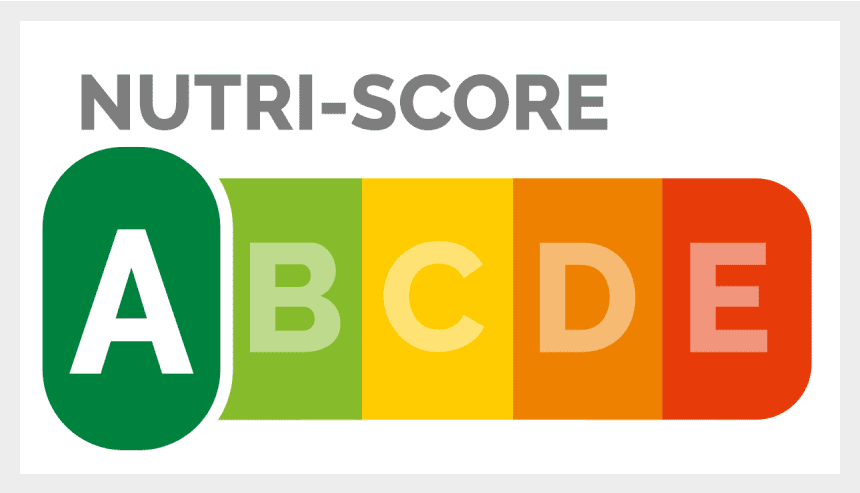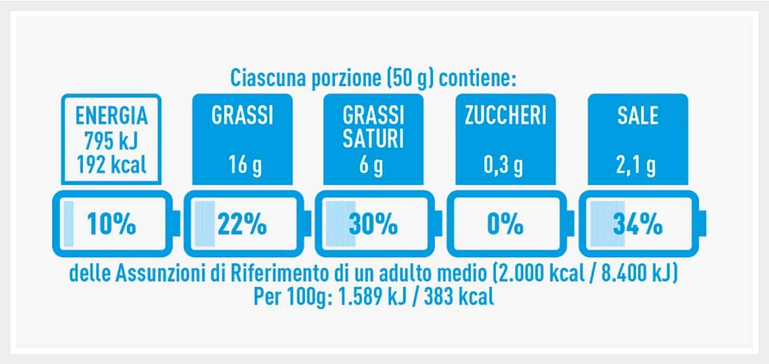Seven countries, including the two largest economies in the European Union, have come together to promote the adoption of Nutri-Score.
Germany, Belgium, the Netherlands, Luxembourg, Spain, Switzerland and France announced that they would form an intra-European committee to facilitate debate on the French front-of-pack labeling system (FOPL) and bring about a smooth transition to one uniform food labeling system in the bloc.
Its objective is to facilitate the use of Nutri-Score by manufacturers in the food sector, to help small businesses and to liaise with consumers, by implementing common and efficient procedures.
According to the Luxembourg Chronicle, the Transnational Coordination Mechanism includes both a steering committee and a scientific branch.
The steering committee includes all the relevant local authorities focused on Nutri-Score in the seven countries and will help disseminate the new logo within the food sector, from large retailers to small businesses.
See Also:Nutri-Score UpdatesMeanwhile, the scientific branch will focus on possible developments and implementations for Nutri-Score.
“Its objective is to facilitate the use of Nutri-Score by manufacturers in the food sector, to help small businesses and to liaise with consumers, by implementing common and efficient procedures,” the Transnational Coordination Mechanism said.

The announcement has been cheered by the European Consumer Organization (BEUC), which is among Nutri-Score’s strongest supporters.
“BEUC welcomes the initiative to help a wider number of consumers benefit from the Nutri-Score,” the organization said. “To date, Nutri-Score has been acknowledged as the most effective label to help consumers make healthier choices in the supermarket.”
Despite numerous members of the academic, private and public sector uniting behind Nutri-Score, the FOPL still faces significant opposition from some members of the agricultural industry and their allies in government.
In Italy, industry and institutions have been combating the implementation of Nutri-Score since its inception and the guidelines for the nation-wide implementation of its competing labeling system, Nutrinform Battery, have just been published.

Opposition to Nutri-Score is also growing in Spain, as the FOPL will be officially introduced within weeks.
Many of the country’s olive oil producers and businesses rebuffed the Ministry of Consumption’s recent decision to exempt olive oil from the Nutri-Score labels on their packages.
Two prominent producer organizations insisted that the French FOPL must be upgraded so that olive oil will not be graded with a “Yellow C” on the Nutri-Score healthy food scale.
The Spanish Association of Olive Municipalities (AEMO), which is involved in olive growing, said that the only way to resolve the current impasse is to reform the FOPL. The organization would like extra virgin olive oil labeled with a “Green A,” which is the best possible classification in the Nutri-Score scale.
The association said that omitting olive oil from the labeling scheme would create too much confusion. AEMO added that without reforming Nutri-Score to reflect extra virgin olive oil’s health benefits, Spanish exports within the European Union would be severely impacted.
“In two cases out of three, [intra‑E.U. exports] are fueled by olive oil’s healthy record,” AEMO said.
A similar sentiment has been echoed by the Spanish producers association QVExtra! International. In a note, the organization asked for a review of the Nutri-Score labeling platform so that extra virgin olive oil may be labeled with the highest rating, while non-virgin olive oil should be labeled with the “Greenish B.”
However, prominent proponents of Nutri-Score, including Pilar Galan, insist that Nutri-Score allows consumers to compare foods belonging to similar categories and olive oil has the best possible rating in the fats and oils category.
“Nutri-Score in no way penalizes olive oil,” Galan told Olive Oil Times. “Olive oil is rated C, which is the best score for added fats, seasoning or cooking, and even vegetable oils. This ranking is fully consistent with public health recommendations. In Spain, as elsewhere, [those recommendations] do not suggest the consumption of olive oil without limit.”
While some in the sector are pushing to improve olive oil’s Nutri-Score classification, the Spanish Association of the Origin denominations, Origen España, has said it would prefer adopting the Nutrinform Battery labeling platform.
A spokeswoman told reporters that the organization believes the Italian system will be “more in line with reality.”
The organization, which represents more than 200,000 Spanish producers with a Protected Geographical Indication or Protected Designation of Origin, shares the Italian position about the universal adoption of Nutri-Score for high-quality specialty products.





